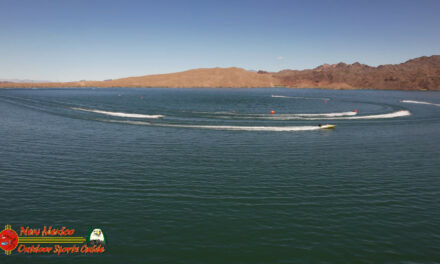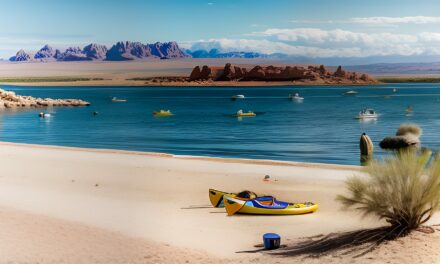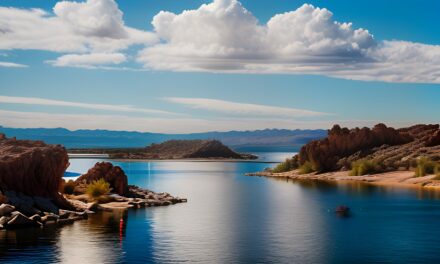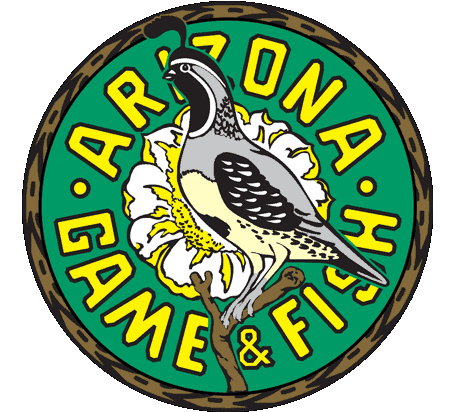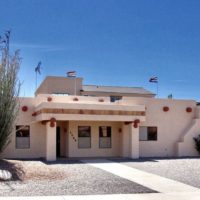converging on Falcon Lake along the Texas-Mexico border in a concerted
effort to clean up illegal commercial fishing activities and prevent
water safety violations, as well as to enforce other state laws.
– Lake Havasu
involve game wardens stopping vessels on Falcon Lake to ensure
compliance with all state game, fish and water safety laws.
Commercial fishermen in possession of illegal nets will be arrested and
transported to the Zapata County jail and their vessels will be seized,
according to Texas Parks and Wildlife Department Game Warden Captain
Chris Huff.
TPWD is
coordinating the effort with other agencies, including the Zapata
County Sheriff’s Office, U.S. Border Patrol, U.S. Customs, Texas
Department of Public Safety and Texas Homeland Security.
Falcon Lake
is a massive impoundment along the Rio Grande River extending about 20
miles long and three miles wide at some points and covers 87,000
surface acres.
Huff
estimates there are about 75 Mexican commercial fishermen who fish
Falcon Lake daily. It is legal to use gill nets, hoop nets and
other commercial fishing gear on the Mexican side of the lake; such
practices are outlawed in all Texas state waters.
TPWD game
wardens routinely patrol the lake investigating these kinds of
activities and have been successful in apprehending violators.
According to Huff, patrols during the last six months have resulted in
12 arrests, along with seizure of seven vessels and outboard motors and
more than 38,000 feet of gill netting. A similar operation
conducted between Sept. 2004 and Aug. 2005 resulted in 34 arrests,
seizure of 23 vessels and more than 84,000 feet of illegal nets.
Unlike
routine lake patrols elsewhere, Lake Falcon presents unique challenges
for law enforcement. “Whenever we see one of these types of
boats, we don’t know if it is an illegal fisherman of a drug runner,”
said Huff. “Most of the arrests involve Mexican nationals and
once we’ve made contact and determine they are conducting illegal
activity we have to seize their equipment and vessel and bring them
ashore. We can’t simply issue a citation because there are other
violations of the law that come into play; illegal entry.”
“We’re not
just going to concentrate on illegal commercial fishing activities, but
all game and fish activities,” said TPWD Game Warden Major Alfonso
Vielma. “We intend to bring attention that is needed to Falcon
Lake. There are other elements coming through the lake — illegal
aliens, drug smuggling — dangerous elements. We’re concentrating
on game law violations, but we won’t ignore other violations of the
law.”
The location of Falcon Lake makes for easy access by
illegal immigrants from Mexico to Texas soil, as well as for illegal
drug smuggling activity and is sometimes viewed as a potential Homeland
Security threat. Violations including illegal entry, drug
smuggling or other homeland security related activities will be turned
over to other appropriate authorities.
Huff added
it is not uncommon to arrest the same individuals several times over a
period of time; they typically return after obtaining another
vessel. But, he sees the additional enforcement pressure as a
deterrent. “Our wardens are doing a great job with great success,
but a statewide operation is necessary to show the fishermen and the
public we are committed to enforcing the law,” he stressed.
Commercial
netting has been outlawed in Texas waters for decades because of the
potential impacts to a fishery. Commercial netting nearly wiped
out redfish populations along the Texas coast in the ’70s, which led to
the statewide ban.
Illegal
commercial netting can severely deplete aquatic resources on reservoirs
such as Falcon Lake, where low water levels during dry periods can
concentrate fish, making them susceptible to fishing pressure and poor
reproduction. Until recently, Falcon Lake had been suffering
through a decade long drought that saw lake levels plummet 50-feet;
lowest on record.
Commercial
fishing on Falcon Lake is nothing new, according to Huff. The
lake was impounded in 1954 and by 1958, an influx of commercial
fishermen from East Texas used high powered boats to illegally fish
with gill nets and wooden fish boxes. Mexican commercial
fishermen soon entered the scene and by the 1970s when commercial
fishing became illegal in Texas, had the run of Falcon Lake to
themselves.
Insignificant
fines and penalties did nothing to deter the activity. By 1980,
Mexican commercial fishing operations were at an all-time high with
more than 300 registered fishermen. In 1990, TPWD game wardens
had filed 175 cases and confiscated more than 50 MILES of illegal nets.
Finally, in
1991, a bill was passed allowing game wardens to seize and confiscate
undocumented vessels used in illegal netting activities. Although
the confiscation of vessels and gear has had the desired effect,
illegal commercial fishing continues on Falcon Lake.
“Why?
The answer is simple,” Huff said. “Profit outweighs
penalty. The profit being derived from high fish prices and the
smuggling of drugs is the incentive. Certain species of rough
fish bring more than $2 per pound on today’s market. What we want
to do with stepped up enforcement operations is to make it
unprofitable.”
– Lake Havasu



